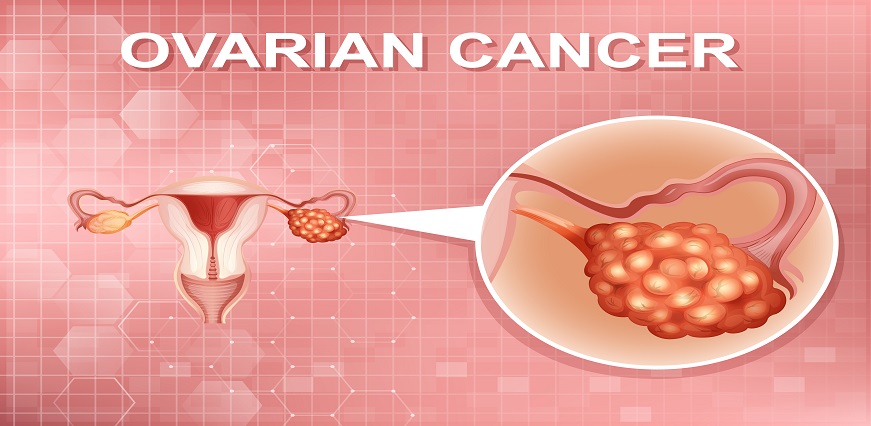

Home > Category > Female Cancer Test > Female Cancer Test in Panipat
Showing 1 - 15 of 22
From periodic menstrual cycle to menopause, a woman’s body goes through plenty of changes, making them susceptible to various health concerns, including gynecologic cancer. The type of cancer starts in a female body’s reproductive organs, which encompass the cervix, ovaries, vagina, uterus, and vulva. Gynecologic cancer is often due to genetic predisposition, environmental factors or certain hormonal disbalances. Routine screenings and preventive measures are paramount for early detection of cancer and risk mitigation. Hence, to stay proactive about one’s health, booking a female cancer test in Panipat is crucial.
Gynecologic cancer can occur in a female body regardless of age or ethnicity. It can even affect some transgender men and non-binary individuals who are assigned female at birth. While risk factors may vary from person to person and types of gynecologic cancers, common contributors include lifestyle choices like smoking and consuming alcohol, genetic predisposition and certain other infections like HPV. Additionally, women at older ages are susceptible to these malignancies, underscoring the importance of regular screenings and booking a periodic cancer test for females is vital to stay updated at every stage of life. It is imperative for all individuals with female reproductive systems to stay vigilant, notice the signs and symptoms of female cancer, and proactively engage in routine women cancer tests tailored to their unique circumstances.
Gynecologic cancer is classified into five different types, each having a specific blood test for cancer in women. The types include:
The root cause of cancer in women is multifaceted, as it can happen from a range of hormonal, genetic, environmental, or lifestyle factors. Among various causes of gynecologic cancer, genetic mutations can increase the likelihood of developing certain types of cancer. Another cause includes hormonal imbalance in the body, like prolonged exposure to estrogen without progesterone, which can increase the risk of certain types of cancer. Additionally, women who are exposed to smoking or alcohol consumption are also at high risk of developing gynecologic cancer. Other causes include menstruation at an early age, late menopause and nulliparity, which may also increase the risk of female cancer.
Some of the common symptoms include:
If an individual is experiencing any of the symptoms above, it is crucial to consult a doctor and book a female cancer test in Panipat as soon as possible.
Some of the key prevention strategies for gynecologic cancer include:
Treatment for gynecologic cancer depends on the type of cancer, its severity, stage and individual factors. Some of the common treatment plans include surgery, radiation therapy, chemotherapy, immunotherapy and targeted therapy. Early detection through pap smears, mammograms, HPV tests, and pelvic exams is crucial in timely intervention and suggestive outcomes. Regular follow-ups with gynaecologists and booking recommended female Cancer tests in Panipat are essential for monitoring and managing cancers effectively.
Gynaecological cancers refer to cancers that begin in the reproductive organs of females. Some of the most common types of gynaecological cancers are breast cancer, endometrial cancer, ovarian cancer, cervical cancer, and uterine cancer. Additionally, there are rarer types of gynaecological cancer, such as gestational trophoblastic tumours, vaginal cancer, fallopian tube cancer, and vulvar cancer.
The symptoms of cancer in females may vary depending on the type of cancer. The key symptoms may include:
Currently, there is no single test that can accurately diagnose cancer. Doctors typically perform comprehensive evaluations, including a physical examination, reviewing medical history, and various diagnostic procedures, such as imaging tests, endoscopic examinations, genetic testing, and biopsies to screen for cancer.
The CA125 is a type of biomarker used to measure the levels of the CA125 protein in the blood.
Cancers that originate in the reproductive system of women are referred to as gynaecological cancers.
There are several risk factors associated with an increased chance of developing gynaecological cancers.
Several blood tests can help diagnose cancer by detecting and measuring tumour markers in the blood. Standard tests that can detect cancer in early stages include the CA125 blood test, AFP, CEA testing, and PSA testing.

Breast cancer starts in breast tissue. It develops in the ducts or lobules of...Read More

In a human’s lifetime, the cells in their body grow, divide, and die co...Read More